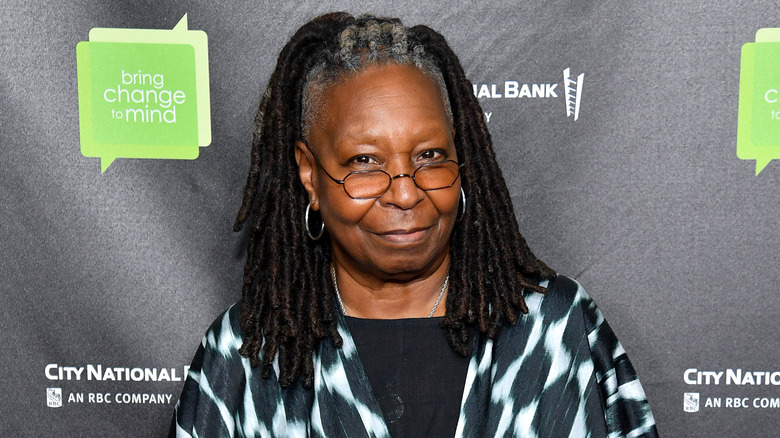The Scandal That Nearly Got Comedian Hasan Minhaj Canceled
Amongst many well-known, successful comedians out there today, Hasan Minhaj managed to make a name for himself, especially as a person of color. After struggling as a standup comic, he got his big break as a senior correspondent for "The Daily Show" and made a name for himself after roasting Donald Trump at the 2017 White House Correspondents Dinner. That same year, he came out with his very first standup special, "Homecoming King," on Netflix and went on to host his talk show "Patriot Act" on the streaming network for two years.
Minhaj references a lot of his Indian upbringing in his routines, as well as stories about his life growing up with Muslim immigrant parents. In "Homecoming King," he spoke about a menacing phone call to his family after September 11 and someone smashing their car window afterward. "Do I sort of just forget this hate crime? Do I sweep up the glass, that way the neighbors don't see it, and just go back inside and actually be grateful that they broke the windows on the car," Minhaj shared on "Fresh Air." He continued, "Or do I use this as a moment to be like, no, this is wrong, and I should speak up and say something?" The story was just one of many that Minhaj has recounted over the years but it was soon revealed that he had fudged details and some may not even be true.
Hasan Minhaj admitted that some of his stories were made up
Much of a comedian's routine is based on their actual lives and Hasan Minhaj certainly presented his anecdotes as such. However, The New Yorker unearthed many untruths from Minhaj's stories. In his second Netflix standup special "The King's Jester," he recounted how an F.B.I. informant named "Brother Eric" tried to infiltrate his community's mosque in Sacramento in 2002. It turned out that he was in prison that year and had never worked for the F.B.I. in Northern California. Another story about receiving white powder in the mail and rushing his daughter to the hospital thinking she was exposed to anthrax turned out to be false as well. Minhaj stated, "Every story in my style is built around a seed of truth. My comedy Arnold Palmer is seventy percent emotional truth ... and then thirty percent hyperbole, exaggeration, fiction."
Following his admission, many were quick to call Minhaj out. "Have no view on comedy ethics but its not OK to make up instances of threat over journalism. There are a lot of people really harmed or killed as journalists ... and its a disservice to them," an X user (formerly Twitter) shared. "Comedians of course have the right to make stuff up to tell a joke ... But this is totally different — it's oppression fantasy and it delegitimizes real stuff via elite capture," another tweeted. Although many slammed Minhaj for his lies, one fellow comedian stood up for the standup.
Whoopi Goldberg defended Hasan Minhaj
Whoopi Goldberg knows what it's like to be a comedian and she came to Hasan Minhaj's defense amid fans cancelling him. While on "The View," she stated, "That's what we do, we tell stories and we embellish them." The "Ghost" actor then inserted, "If you're gonna hold a comic to the point where you're gonna check up on stories, you have to understand, a lot of it is not the exact thing that happened because why would we tell exactly what happened? It ain't that interesting." Goldberg went on to say that other comics only share a "seed of truth" and sometimes their stories are "total BS."
Minhaj took to his own defense and told The Hollywood Reporter, "All my standup stories are based on events that happened to me." He shared that the story about being rejected at prom due to his race really happened, as did receiving a letter in the mail with white powder. He called his art form "hyperbole" in the name of telling "entertaining stories." While he may think bending the truth is okay for comedy, fans are probably going to listen to his tales with a grain of salt moving forward.



